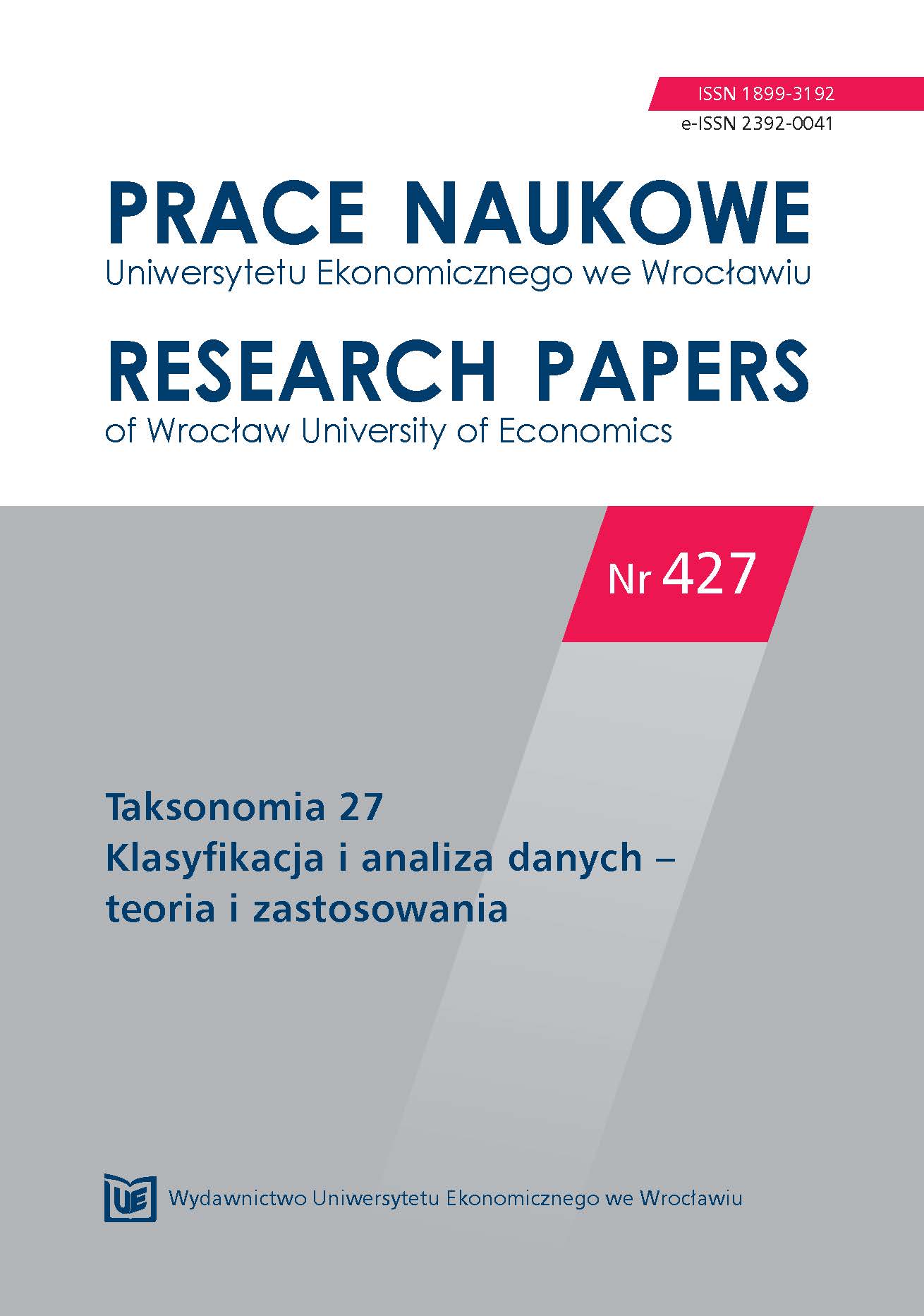Zastosowanie modeli klas ukrytych w badaniu opinii respondentów na temat roli państwa w gospodarce
Implementation of latent class models in the respondents’ survey on the role of the country in economy
Author(s): Lucyna WojcieskaSubject(s): Economy
Published by: Wydawnictwo Uniwersytetu Ekonomicznego we Wrocławiu
Keywords: stated preferences; the role of the government in economy; latent class models; R program
Summary/Abstract: The aim of the article is to present the respondents’ opinion survey on the role of the country in the economy with regard to Poland by: indicating the dominant concepts (socialism, interventionism, liberalism and Keynesianism), respondents’ segmentation, characteristics influence on belonging to classes. Gathering of empirical data on the basis of the conducted survey was subcontracted to ResearchOnline company. Subjective scope covered 991 respondents, while the objetive one – 11 892 observations of 12 variables of the observed set measured on dichotomous scale. Models of latent class models and models of latent class regression were used. The estimation was conducted by means of poLCA package and the R project. The conclusions were given: in the light of the informational criteria the most adequate model is a division of the surveyed group into 4 classes according to their contribution: 1–31%, 2–26%, 3–6%, 4–37%; in the class 1, 2 dominates the conviction that the state should play the role of the welfare state by means ofincreasing the minimum wage and extension of the social system (socialism) as well as creating new national companies (Keynesianism); class 3 respondents support the idea of liberal economy; class 4 is dominated by “undecided” respondents; none of the covariates significantly influences on the respondents’ belonging to particular classes.
Journal: Prace Naukowe Uniwersytetu Ekonomicznego we Wrocławiu
- Issue Year: 2016
- Issue No: 427
- Page Range: 234-242
- Page Count: 9
- Language: Polish

